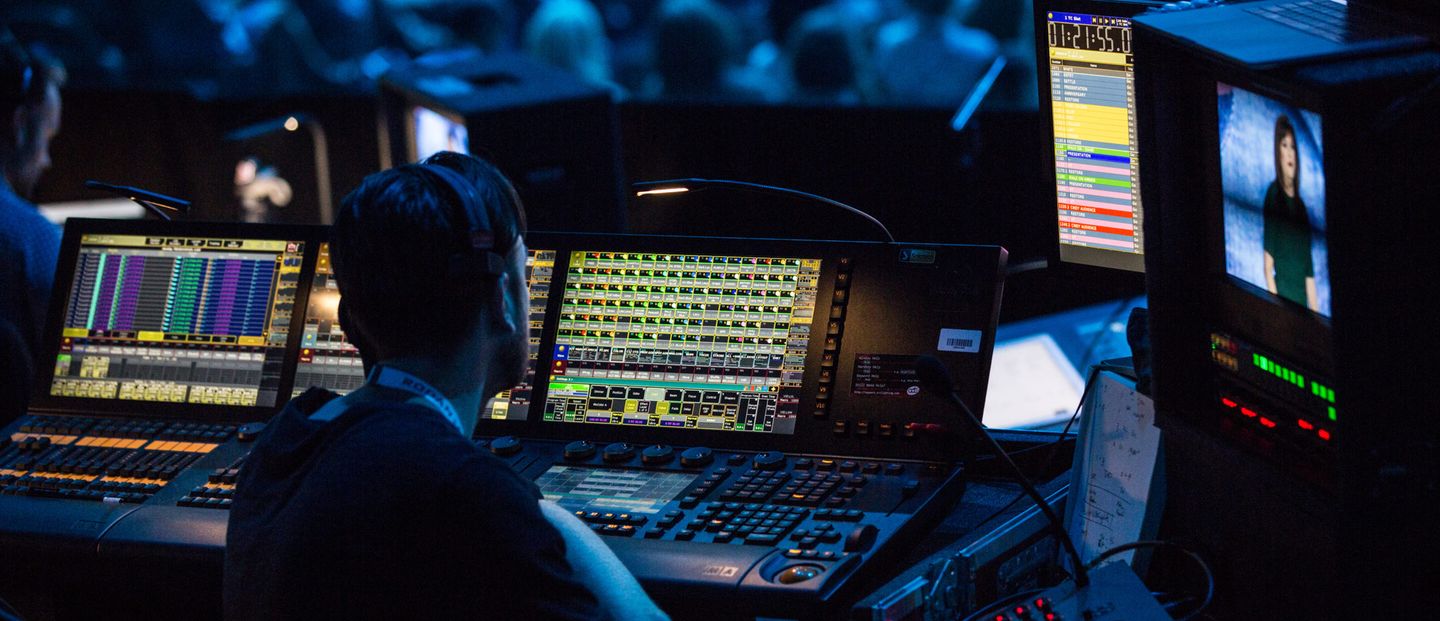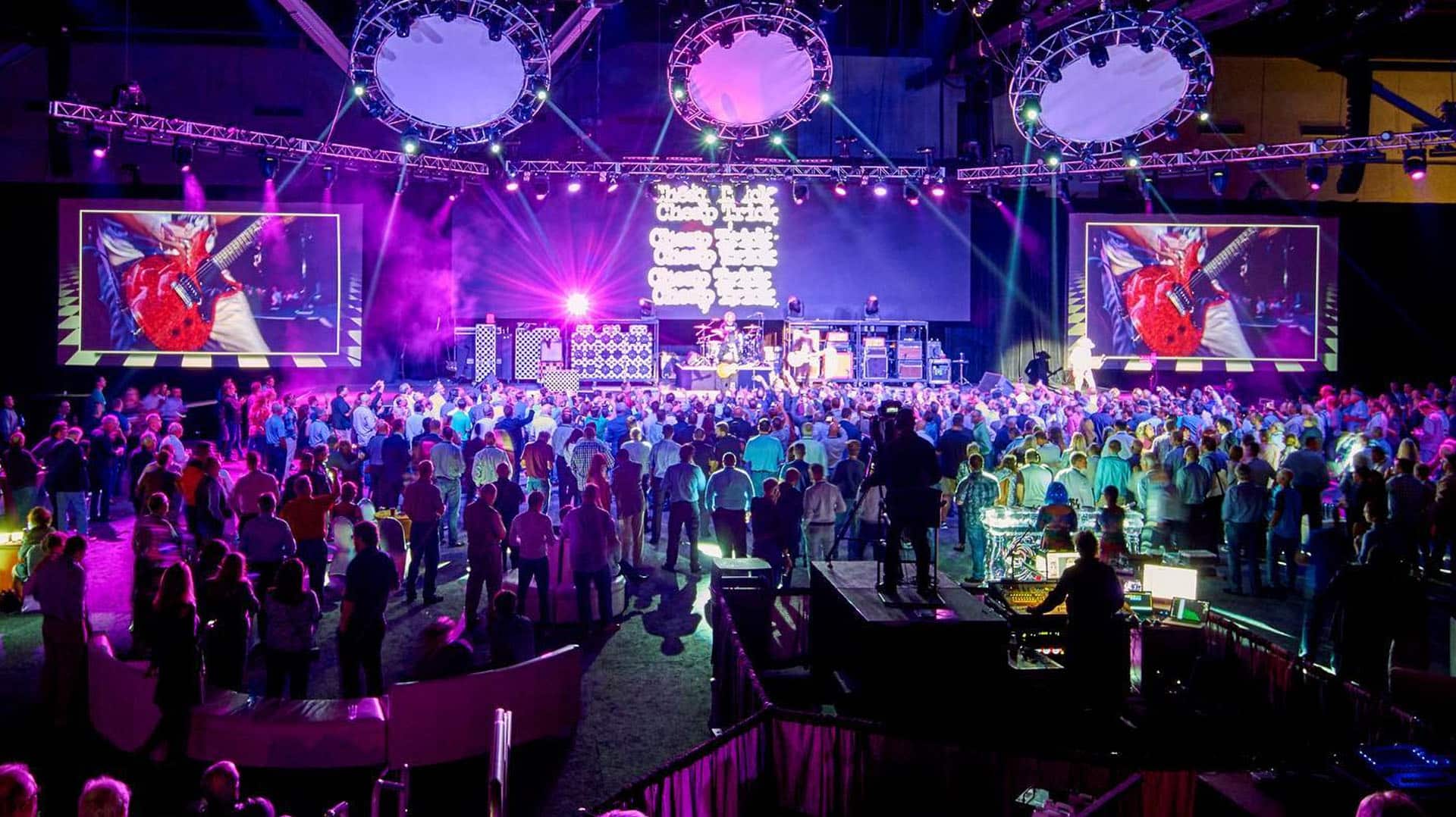Optimize Engagement with Interactive Components in Event Productions
Optimize Engagement with Interactive Components in Event Productions
Blog Article
Comprehending How Events Production Works: A Comprehensive Summary of the Process
The intricacies of event manufacturing need a methodical technique that incorporates several phases, each playing a vital function in the general success of an event. From the preliminary preparation and principle development to the precise sychronisation of logistics, every component must line up seamlessly to accomplish the preferred end result. Understanding the nuances of budgeting, source allocation, and on-site monitoring is essential for any expert in this field. As we explore these components even more, it ends up being evident that the process is not just about implementation however also concerning constant improvement and tactical evaluation. What understandings can we glean from each stage?
First Preparation and Concept Development
Efficient preliminary preparation and principle development function as the structure for successful events manufacturing. This stage involves defining the event's purpose, target audience, and preferred end results. A clear vision is vital; it guides all succeeding choices and assists line up the group's efforts towards an usual objective.
Throughout this phase, brainstorming sessions can be indispensable. Involving stakeholders, consisting of clients, sponsors, and potential guests, fosters a joint setting that generates cutting-edge concepts. In addition, extensive marketing research ought to be conducted to understand trends, preferences, and prospective difficulties.
When the idea is established, it is critical to create a detailed event summary. This summary ought to consist of the occasion's style, format, and vital tasks. Establishing a timeline is just as important, as it aids to handle due dates and jobs properly.
Budgeting and Resource Allocation
With a strong principle in place, interest has to turn to budgeting and resource appropriation, which are important elements in performing the event effectively. A well-defined budget offers as a roadmap, describing all anticipated costs and readily available sources - Event Productions.
Source appropriation involves assigning both human and financial resources to numerous jobs and elements of the occasion. Prioritization is vital; vital components should receive sufficient financing while much less essential aspects may require a much more conventional strategy. Additionally, backup preparation is vital-- assigning a section of the budget plan for unanticipated costs can minimize monetary dangers.
Furthermore, efficient communication amongst staff member pertaining to spending plan restraints promotes partnership and innovation. This promotes the responsible use of resources and motivates imaginative solutions to stay within budget plan. Eventually, a calculated technique to budgeting and resource allocation lays the groundwork for a successful event, enabling organizers to focus on delivering a memorable experience for attendees while keeping monetary honesty.
Logistics and Coordination
Browsing the complexities of logistics and coordination is essential for the smooth implementation of any type of occasion. This phase includes meticulous preparation and company to make sure that all components operate in consistency. Secret components consist of place choice, transport arrangements, and the organizing of various tasks.
This includes understanding the design, accessibility points, and readily available sources. Coordinating these aspects calls for collaboration with vendors, vendors, and transport services to guarantee prompt shipments and pick-ups.
Another crucial aspect is the advancement of an extensive timeline that outlines all logistical aspects leading up to the event. This timeline offers as a roadmap, detailing essential landmarks and deadlines for jobs such as tools setup, providing solutions, and audiovisual setups. Regular interaction with all stakeholders is important to deal with any type of possible concerns proactively.
Execution and On-Site Monitoring
Effective execution and on-site management are crucial for changing thorough plans right into truth during an occasion. This stage involves the seamless control see this website of different components, guaranteeing that every information lines up with the established vision. On-site managers play a critical role, acting as the main factor of communication among suppliers, team, and stakeholders. Their ability to make real-time decisions can dramatically affect the event's success.
A distinct timetable is necessary, offering as a roadmap for all activities. Occasion managers have to guarantee that setup happens promptly, adhering to timelines for audio checks, providing deliveries, and visitor arrivals. Efficient analytical abilities are also essential; unexpected obstacles can occur, requiring fast thinking and versatility to keep the event's flow.
This level of engagement not only improves the general experience however additionally mirrors the professionalism of the occasion team. Eventually, successful implementation and on-site monitoring joint on comprehensive preparation, effective communication, and a commitment to providing an extraordinary occasion for all included.

Post-Event Assessment and Responses
The conclusion of any type of event lies not only in its implementation yet also in advice the detailed examination that follows. Post-event examination is vital for determining the general success of the occasion and identifying areas for enhancement. This procedure generally involves celebration comments from different stakeholders, consisting of attendees, suppliers, and employee, to gain a thorough point of view on their experiences.
To structure the evaluation, occasion organizers commonly utilize surveys and meetings, focusing on vital efficiency indications such as guest contentment, logistical efficiency, and spending plan adherence. Assessing this information enables coordinators to evaluate whether the event fulfilled its purposes and to recognize the strengths and weak points of the execution.
By methodically dealing with comments and applying changes, occasion professionals can boost their strategies, eventually leading to more effective and impactful events. In conclusion, post-event evaluation is a vital step in the occasion manufacturing process that makes sure recurring development and excellence in future endeavors (Event Productions).
Verdict

The details of occasion manufacturing need a methodical technique that integrates multiple phases, each playing an important function in the general success of an occasion.With a solid concept in location, attention has to transform to budgeting and source allocation, which are essential parts in implementing the occasion effectively.Resource appropriation includes assigning both financial and human resources to numerous tasks and elements of the occasion. Inevitably, a tactical strategy to budgeting and source appropriation lays the foundation for an effective event, making it possible for coordinators to concentrate on providing an unforgettable experience for attendees while keeping monetary integrity.

Report this page